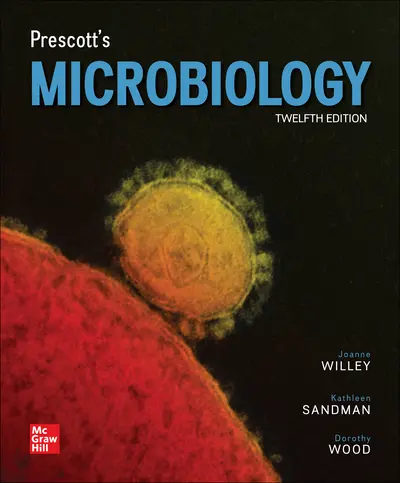Joanne Willey
Joanne M. Willey has been a professor at Hofstra University on Long Island, New York, since 1993, where she is the Leo A. Guthart Professor of Biomedical Science and Chair of the Department of Science Education at the Donald and Barbara Zucker School of Medicine at Hofstra/Northwell.
Dr. Willey received her B.A. in Biology from the University of Pennsylvania, where her interest in microbiology began with work on cyanobacterial growth in eutrophic streams. She earned her Ph.D. in biological oceanography (specializing
in marine microbiology) from the Massachusetts Institute of Technology–Woods Hole Oceanographic Institution Joint Program in 1987. She then went to Harvard University, where she spent her postdoctoral fellowship studying the filamentous soil bacterium Streptomyces coelicolor. Dr. Willey has coauthored a number of publications that focus on its complex developmental cycle. She is an active member of the American Society for Microbiology (ASM), and served on the editorial board of the journal Applied and Environmental Microbiology for nine years and as Chair of the Division of General Microbiology. Dr. Willey taught microbiology to biology majors for 20 years and now teaches microbiology and infectious disease to medical students. She has taught courses in cell biology, marine microbiology, and laboratory techniques in molecular genetics.
Dr. Willey lives on the north shore of Long Island and has two grown sons. She is an avid runner and enjoys skiing, hiking, sailing, and reading. She can be reached at joanne.m.willey@ hofstra.edu.
Kathleen Sandman
Kathleen M. Sandman received her B.A. in Biology from La Salle University and her Ph.D. in Cellular and Developmental Biology from Harvard University. She was inspired to a career in science by her older brother’s experience as an organic chemist and by the developing technology in recombinant DNA in the 1970s. Her graduate work used a transposable element as a mutagen in Bacillus subtilis to study gene expression during endospore formation. She continued in the genetics of Gram-positive bacteria with a postdoctoral year studying Bacillus thuringiensis at the University of Cambridge in the United Kingdom. Another postdoctoral opportunity at The Ohio State University provided an introduction to the emerging field of archaeal molecular biology, where Dr. Sandman discovered archaeal histones and continued research in the structural biology of archaeal chromatin for about 20 years. She served the National Science Foundation as a research grant reviewer and panelist for the Life in Extreme Environments program, and has organized conference sessions on archaeal molecular biology and proteins from extremophiles. Dr. Sandman has taught microbiology to hundreds of students, at both the introductory level and in an advanced molecular microbiology laboratory.
Dr. Sandman has worked as a consultant in a variety of industries, including industrial microbiology, environmental geomicrobiology, and technical publishing. She lives with her husband in Columbus, Ohio, and has two grown daughters. She enjoys biking, fabric arts, reading, and genealogy, and can be reached at kathleenmsandman@gmail.com.
Dorothy Wood
Dorothy H. Wood has taught microbiology and general biology at Durham Technical Community College in North Carolina since 2004. Dr. Wood received her B.A. in Biology from Rhode Island College where her love of microbes
began, nurtured by Dr. Charles Owens. She earned her Ph.D. in Cell and Molecular Pathology from the University
of North Carolina at Chapel Hill, focusing on pancreatic damage caused by antimicrobial drugs, and investigated alternative therapies based on receptor binding by novel compounds. After three years as Assistant Professor at NC Central University, Dr. Wood made the move to the NC Community College System to focus her attention on her primary interest of teaching. Throughout her career she has developed several courses, including graduate bacteriology, pathophysiology, and biotechnology. She serves as a visiting scholar at Duke University where she is a mentor for the Preparing Future Faculty program. Dr. Wood is a member of the American Society for Microbiology and the Association of College and University Biology Educators, as well as several local organizations that foster pedagogy. She is a digital faculty consultant for McGrawHill and has worked on several textbooks in a variety of disciplines, developing and editing digital content to accompany the texts. Outside of the classroom, Dr. Wood is a fitness professional, leads health and wellness seminars, and has been the treasurer of a nonprofit organization for the past 10 years. She enjoys life in North Carolina with her husband and two grown children and can be reached at woodd@durhamtech.edu.
